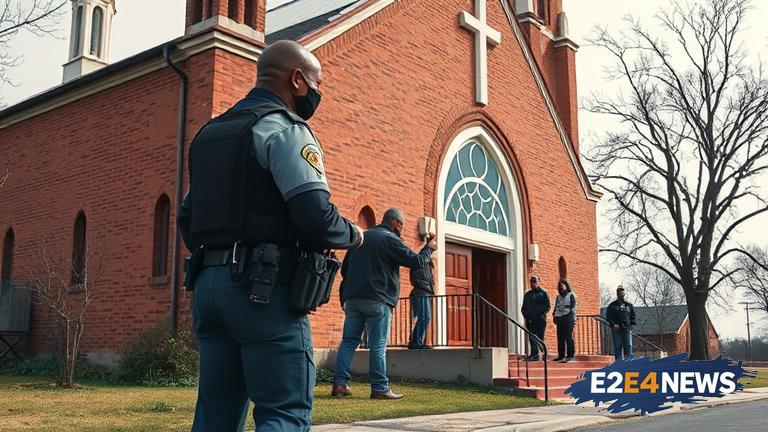A landmark lawsuit has been filed against the US Immigration and Customs Enforcement (ICE) agency, challenging the constitutionality of arrests made on church property. The lawsuit, which was filed in a federal court, argues that such arrests are a clear violation of the First Amendment and the constitutional right to freedom of religion. The plaintiffs in the case claim that ICE has been targeting churches and other places of worship, arresting undocumented immigrants who have sought refuge in these sacred spaces. This practice, the lawsuit alleges, has created a climate of fear and intimidation, deterring people from attending church services or seeking help from faith-based organizations. The lawsuit cites several instances where ICE agents have entered church property, including a case where agents arrested a man who was seeking shelter in a church in California. In another instance, ICE agents arrested a woman who was attending a church service in Texas, despite the fact that she had been granted temporary protected status. The lawsuit argues that these arrests are not only unconstitutional but also undermine the trust and confidence that people have in their churches and faith leaders. The plaintiffs are seeking a court order that would prohibit ICE from making arrests on church property, as well as damages for the harm and suffering caused by these arrests. The case has sparked widespread outrage and condemnation from faith leaders and civil rights organizations, who argue that churches and other places of worship should be safe and sacred spaces, free from the fear of arrest and deportation. The lawsuit is part of a broader effort to challenge the Trump administration’s aggressive immigration enforcement policies, which have been criticized for being overly broad and discriminatory. The case has also highlighted the importance of protecting the constitutional right to freedom of religion, which is guaranteed by the First Amendment. The plaintiffs in the case are being represented by a team of lawyers from the American Civil Liberties Union (ACLU) and the National Immigration Law Center (NILC). The lawsuit is expected to have significant implications for the future of immigration enforcement in the US, particularly with regards to the treatment of undocumented immigrants who seek refuge in churches and other places of worship. The case is also likely to spark a national debate about the role of faith and religion in the US, and the importance of protecting the rights and dignity of all people, regardless of their immigration status. As the case moves forward, it is likely to attract widespread attention and scrutiny, both from the media and the public. The outcome of the case will have significant implications for the future of immigration enforcement in the US, and will likely set an important precedent for the treatment of undocumented immigrants who seek refuge in churches and other places of worship. The lawsuit is a powerful reminder of the importance of protecting the constitutional rights of all people, and the need to ensure that the government does not overstep its authority or violate the trust and confidence of the public. The case is also a testament to the power of faith and religion to bring people together and inspire action, even in the face of adversity and challenge. As the case continues to unfold, it is likely to inspire a new wave of activism and advocacy, as people of faith and conscience come together to demand justice and dignity for all. The lawsuit is a call to action, a reminder that the struggle for justice and equality is ongoing, and that the protection of constitutional rights is essential to the health and well-being of our democracy. The case is a powerful reminder of the importance of protecting the rights and dignity of all people, and the need to ensure that the government does not overstep its authority or violate the trust and confidence of the public. The lawsuit is a landmark case that will have significant implications for the future of immigration enforcement in the US, and will likely set an important precedent for the treatment of undocumented immigrants who seek refuge in churches and other places of worship.





